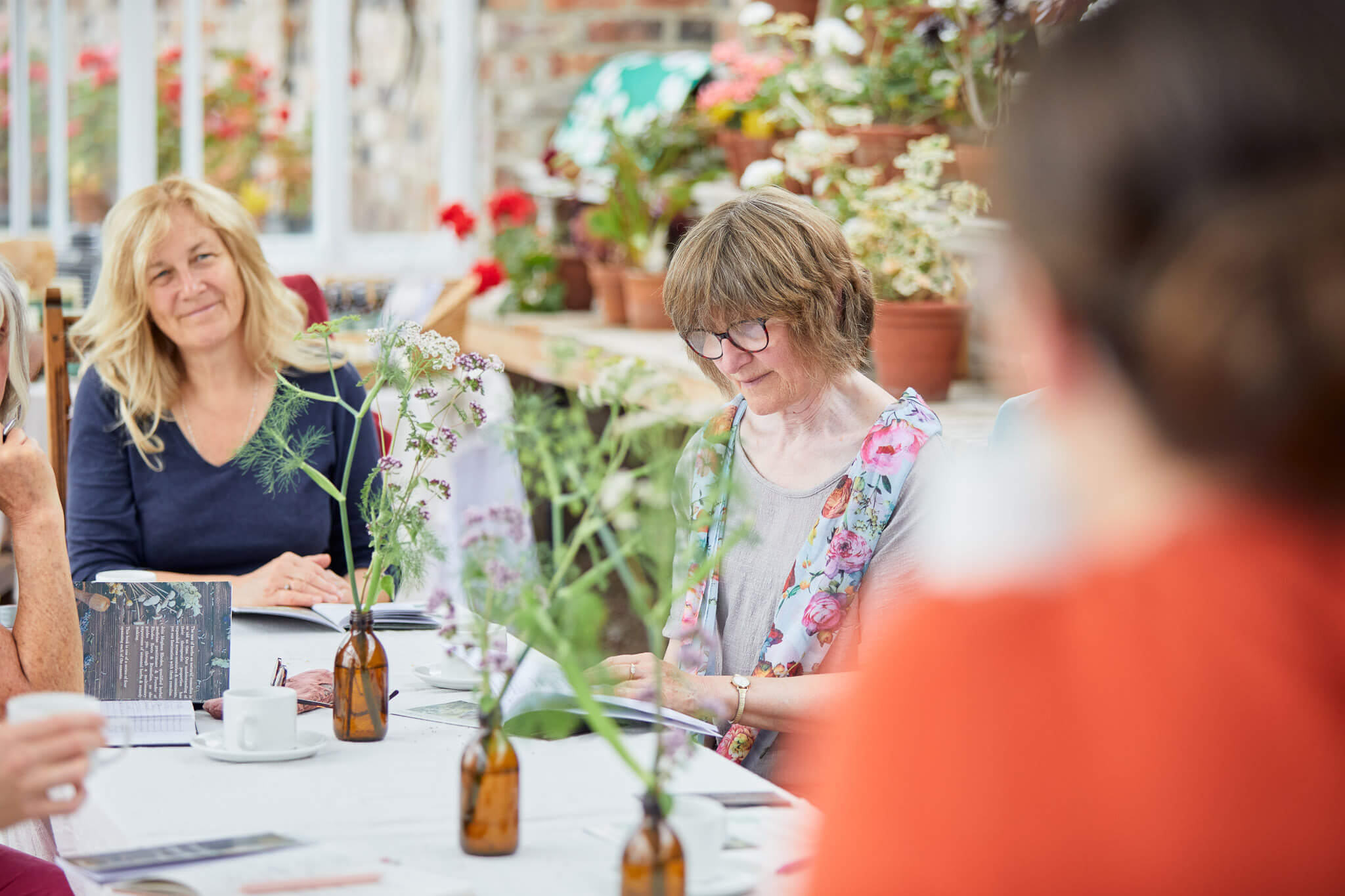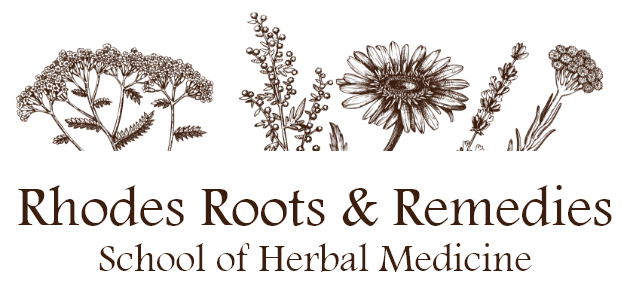If you’re new to learning herbal medicine and wondering where to start with herbalism for beginners, you may be feeling a bit lost or overwhelmed. How do you know which books are by reputable herbalists? How do you know which courses are worth your time and money? How can you start making and using herbal remedies safely and effectively? Here are my top five recommendations as a qualified herbalist.

1. Take it one step at a time
This is something I always recommend to my students - both exploring herbalism as beginners and more experienced students. There is so much to learn with herbal medicine and it’s all connected, so you can’t go wrong with whatever starting point you choose. The key is to just choose one. To get to know one herb or one type of herbal remedy making technique. Learn one herbal taste or action or quality. Read one book or work through one course. Learning herbalism is something that’s ongoing, so there’s no rush.
2. Herbalism for beginners is most effective when focused on the senses
There is so much that can be learned directly through the senses when it comes to herbalism for beginners. As a qualified herbalist who teaches herbalism courses and workshops, I always recommend choosing taste as the first sense. This is because the different tastes of herbs - bitter, salty, sweet, sour, astringent, pungent/aromatic, mucilaginous - all interact with the body in different ways and kick off different physiological processes. Herbalism for beginners should always include getting to know taste very thoroughly because it helps you build a relationship with each medicinal herb and remember what you learn much better than taking notes from lots of books.
3. When it comes to herbalism for beginners, old is gold
One of the beautiful things about herbalism is it is a practice as old as humanity itself. Whilst there are new books coming out all the time, as a qualified herbalist with a hefty collection, herself, I recommend starting with books that have older publication dates. Unless you’re reading one of the classical herbal texts (e.g. Culpeper or Hildegard von Bingen), which use language from a different era and don’t clearly differentiate between what has always been true about a particular herb versus what was a way of thinking about that plant that was more relevant to the context of a particular historical period (not to mention they’re sort of like reading herbal Shakespeare!), you can be confident books that are a few decades old will be saying the exact same thing about a plant’s properties and remedy making techniques as a more contemporary one. (And they’ll be cheaper to buy second hand - doubly helpful when it comes to herbalism for beginners!) I recommend some of the longstanding, well-respected herbalists of our time, such as Anne McIntyre, Julie Bruton-Seal and Rosemary Gladstar. You could fill your bookshelves with their books, alone!
4. Find a reputable teacher or mentor
Look for a qualified herbalist or someone who has completed many years of traditional apprenticeship. You can tell the difference because they will be happy to share their credentials, including any professional bodies they may be members of. If you’re unsure, ask a prospective teacher or mentor about where they trained, their current practice and teaching techniques. Being a herbalist is not a regulated profession in the UK, so you need to check who’s guiding you. For example, I completed an accredited four year clinical herbal medicine practitioner qualification course in Ireland alongside a five year apprenticeship with Anne McIntyre and am now a member of the College of Practitioners of Phytotherapy, as well as the Ayurvedic Professionals Association. Qualified herbalists sometimes teach herbalism for beginners on the side of their private practice or focus on teaching full-time, as I do.
5. Herbalism for beginners doesn’t have to mean going it alone
Yes, many people who are just starting to learn herbal medicine start by collecting bits and pieces of information on their own, as is often the case with any new interest, passion or hobby. But herbalism for beginners doesn’t have to mean going it alone. Once you’re clear you’re keen (or curious enough), I highly recommend finding an in-person workshop or course near you. It’s a great way to take those first steps, get hands-on, use your senses, feel confident in what you’re learning and get to ask your questions live to an experienced herbalist.
So if you’ve been wondering how to get started learning herbalism for beginners, follow my recommendations. First, take it one step at a time. Second, remember herbalism for beginners is most effective when you focus on the senses. Third, when it comes to herbalism for beginners, old is gold. Fourth, find a reputable teacher or mentor. Finally, keep in mind learning herbalism for beginners doesn’t have to mean going it alone!
Herbal medicine lives in the natural world, not the digital one (or even the black and white books on shelves world). It is a living, breathing practice that is best learned with experienced herbalists in person. The best way you can go beyond being limited to following someone else’s herbal remedies recipes is to find an in-person herbalism course near you and go. You’ll meet like minded people, you’ll get to develop skills hands-on and, most of all, you will develop lasting knowledge that becomes part of your daily life. So leave that pile of herbal remedies recipes to the side and get cracking!
If you’re here in the UK, you’re very welcome to take the next step on your journey learning herbal medicine with us on our intensive herbalism course - Awaken Herbal Wisdom - which spans all four seasons and gets herbalism both deep into your bones and your daily life. Although it is intense, it’s suitable for a wide range of herbalists, including beginners! You can learn more about our herbal medicine course here. Be sure to put your name on the waiting list to see what the current cohorts are up to and get first access to enrolment before it opens.
Whatever your next step learning herbalism for beginners is, I hope you enjoy the journey!
At Rhodes Roots & Remedies School of Herbal Medicine, our practice of herbalism is rooted in the belief that we must remember, reclaim and relearn our knowledge of our bodies, our autonomy and how to work with plant medicine in order to bring control of our own health back into our families and homes for a sustainable future for ourselves and the planet. Through our intensive herbalism course, we facilitate the development of confident, empowered herbalists, attuned to the messages of their bodies and the natural world. Living the deep wisdom of herbal medicine within themselves, their homes and their communities, they uplift themselves and others, creating a stronger society organically. We do hope you'll join us on your journey!

